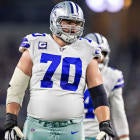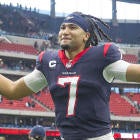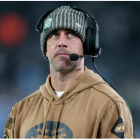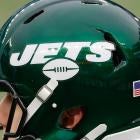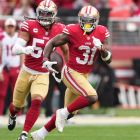After an investigation that lasted more than a year, the NFL on Aug. 11 suspended Cowboys running back Ezekiel Elliott for the first six games of the 2017 regular season "for violating the league's personal conduct policy." The violation stems from a domestic-violence incident that allegedly took place last summer. The NFL Players Association filed an appeal on Elliott's behalf on Aug. 15, and on Tuesday, Elliott was in New York for his appeals hearing. The hearing is expected to run through Thursday, according to ESPN's Adam Schefter.
So with the season less than two weeks away, and Elliott an integral part of the Cowboys' offense, what's next? Here are four things to know about Elliott's hearing.
Goodell picked the arbitrator
Elliott will head to the NFL's Manhattan offices where the appeal will be heard by commissioner Roger Goodell's designated arbitrator, Harold Henderson. Henderson has heard previous appeals, including the appeal of former Vikings running back Adrian Peterson in 2014. Henderson upheld the NFL's original indefinite suspension in Peterson's case, though that suspension was later vacated by a judge.
In 2015, Henderson heard former Cowboys defensive end Greg Hardy's appeal in a domestic-violence case and reduced Hardy's suspension from 10 games to four. In the Hardy case, the NFLPA originally objected to Henderson's appointment because the former NFL labor executive wasn't deemed a neutral or independent arbitrator. It's why some observers were surprised by Henderson's decision to reduce Hardy's punishment.
"Henderson was chastised by [a] federal court judge after upholding Peterson's suspension [in 2014]," Andrew Brandt, the director of the Moorad Center for Sports Law at Villanova Law School and former NFL executive tweeted shortly after the Hardy ruling in July 2015. "Significant reduction here."
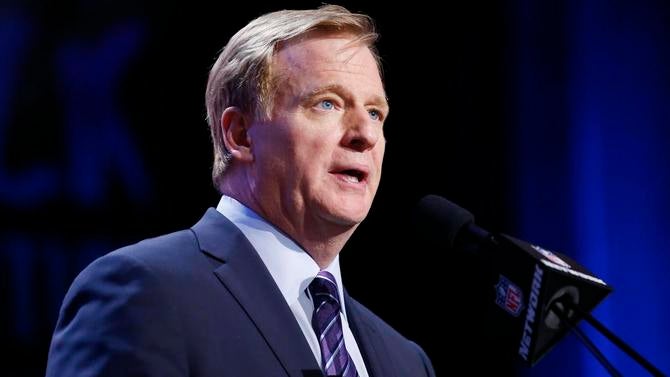
So while SI.com legal analyst Michael McCann describes Henderson as "deeply experienced in NFL labor matters and unquestionably qualified to hear Elliott's appeal," he also concedes that Henderson is "hardly the kind of 'neutral' arbitrator the NFLPA would prefer hear the appeal."
And perhaps that explains why Cowboys owner and general manager Jerry Jones, who maintained for months before the ruling that Elliott would not be suspended because there was no evidence that the running back had committed domestic violence, isn't interested in attending the hearing.
It could have been worse, however; Goodell could have appointed himself to lead the hearing.
What happens after the hearing?
We wait for Henderson to rule. In the meantime, here are two dates to watch: Sept. 2, which is when Elliott's suspension is set to begin, and Sept. 10, which is the Cowboys' regular-season opener against the division rival Giants.
It seems unlikely that Henderson will issue a ruling by Sept. 2, just four days after the hearing, in part because its findings will be heavily scrutinized in a court of law should Henderson deny Elliott's appeal. This also means that Elliott will be barred from practicing with the team starting on Sept. 2. Additionally, he can't work out with teammates or have contact with coaches or staff.
If the hearing wraps as expected on Thursday, that leaves 10 days before teh Sept. 10 season opener, and Henderson has ruled in that time frame in the past. And while Elliott might miss valuable practice time leading up to Sept. 10 Giants game, should Henderson rule before then, Elliott would probably play and be fine given that he has practiced and played with the team the entire preseason.
Can Elliott use the court system to delay his punishment?
Maybe. In the past, players facing suspensions have appealed to the courts to for an injunction, which delays the suspension until the case concludes. And if Henderson hasn't ruled by the start of the season (or even Sept. 2, the start of Elliott's suspension), Elliott can do the same. The problem: The current collective bargaining agreement, which lays out the rights and obligations of every NFL player, including those sanctioned by the league. As McCann notes, the CBA "does not guarantee Elliott a ruling on his appeal before any particular date. Instead, the hearing officer must only make a decision 'as soon as practicable.'"
But ProFootballTalk's Mike Florio notes that Elliott could argue "irreparable harm" if he's denied the chance to play in the regular season. Yes, Elliott could earn back wages at a later date, but there's no way to go back and play those games if he's suspended.
Florio continues:
Given that he's starting his second NFL season and presumably will play in 2018 and beyond, what's the harm to the NFL in pushing the suspension back until Elliott has a fair chance to have his day in court? Even if he's likely to lose, the slim chance of winning makes delaying the suspension a sensible outcome — which would make Elliott available perhaps for the entire season.
Unfortunately, history isn't on Elliott's side; the legal standard for obtaining an injunction is high. Not only that, even if Elliott should get an injunction, he doesn't know when the case will be heard before the court. Yes, it could take place after the season, but it could also happen in November or December, then Cowboys presumably will be making a playoff push. If Elliott loses his case, the six-game suspension would begin immediately, and he could conceivably miss the final month of the regular season and possibly the postseason.
What's the most likely outcome for Elliott?
It's hard to imagine that Henderson will reinstate Elliott without suspension, and Elliott's legal options appear tenuous at best. And in light of new and exculpatory evidence, It might be in the running back's best interest to make his case to Henderson but do it with the understanding that a reduction in the six-game suspension is the best-case scenario.
It's worth noting that criminal charges were never brought against Elliott, though in his hearing with Henderson he could own up to the other missteps he's made during his time in the league as a show of contrition in the hopes of getting his suspension reduced.
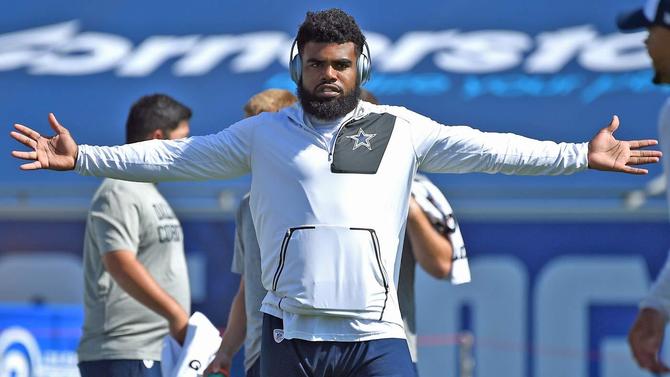
This offseason, Elliott was allegedly involved in an altercation at a Dallas-area bar, but police dropped the investigation after they were unable to contact the alleged victim. The incident came after Elliott had stated in June that he was "just trying to learn to stay out the way" because "whatever you do is going to be seen." The running back had previously been caught pulling down a woman's shirt in public, visiting a marijuana dispensary in Seattle, and getting a 100-mph speeding ticket.
While not ideal, a three- or four-game suspension is better than missing six games. The Cowboys host the Giants and then travel to play the Cardinals and the Broncos before hosting the Rams in Week 4. Perhaps Elliott could be back on the field against the Rams, or the Packers, who come to Dallas in Week 5.
So what does Jerry Jones, one of the league's most powerful owners, think about Elliott's chances at the hearing?
"Well, I don't want to speculate about that at all," he said over the weekend. "I wouldn't do 'a what if' on that. I'm afraid it would have some kind of meaning and I've been reluctant to comment anyway."
And does Jones think Henderson will reduce -- or even reverse -- the six-game ban?
"Harold is a really great friend of mine," Jones said, adding, "He was at my [Hall of Fame] party and so you weren't at that party unless you were a good friend I promise you that."
Asked if that was a yes, Jones replied, "I don't know, but he is a friend and of course that's the way it would be."











